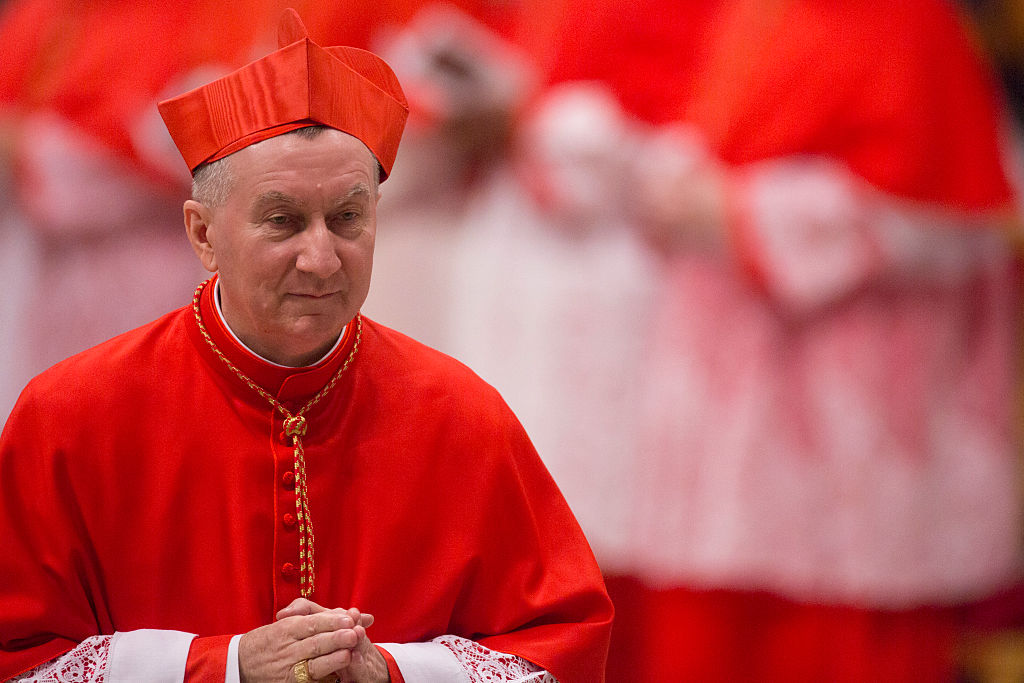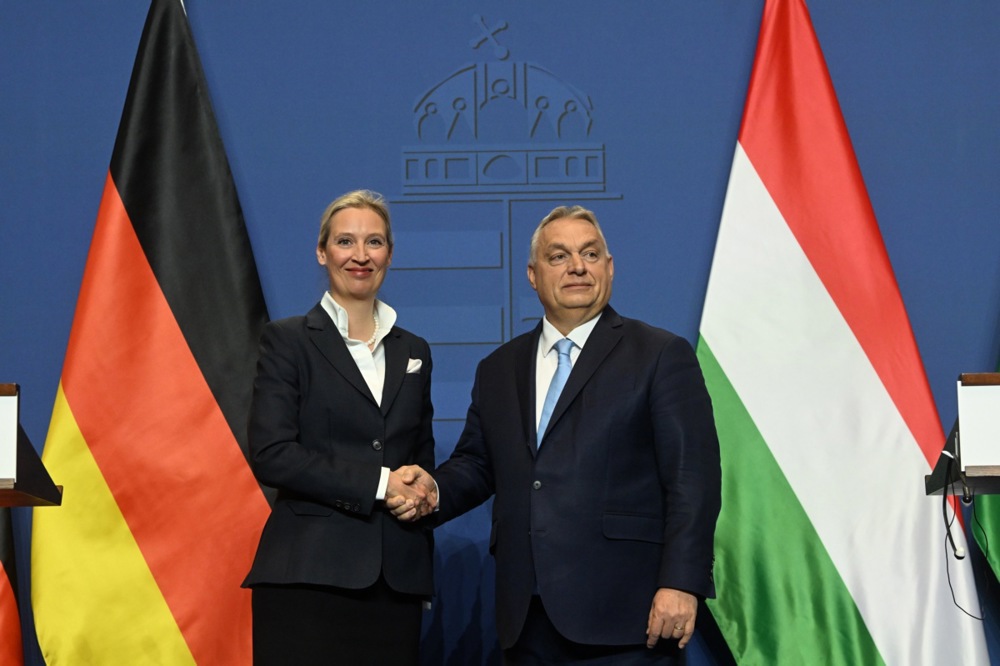Go back to the start of democratic life for Czechs, to 1991, the year Soviet troops left what was then Czechoslovakia. In that year, the Czech Civic Democratic Party (ODS) was founded by Václav Klaus, a darling of Margaret Thatcher. It began as a liberal-conservative party and dominated the political scene. But after ten years, once Klaus left for the presidential office in 2003, the party started a march to the middle — so much so that Klaus now wishes the party a profound defeat in the parliamentary election taking place today and tomorrow. Klaus wants the populist ANO party (its name means “Yes”), led by former prime minister and billionaire Andrej Babiš, to win, or at least to play some role in the next government.
The chairman of the ODS is Prime Minister Petr Fiala, who ceased to be a clear-cut right-winger when he changed from academia to politics. He knows that this weekend he faces defeat by populists. He cries about the threat of populism and extremism. He portrays this election as a fight “for democracy and freedom”. He says we can either stay the course, or we will take the path eastwards, to Russia.
A bizarre argument by him is that democracy would be in danger if there were referenda about membership in the EU and NATO. With such a campaign, Fiala has become a defender of the European ancient regime. Yet ten, twelve years ago he was a moderate Eurosceptic and argued occasionally for “soft populism“.
The main challenger, the ANO movement and its boss Babiš, is not an attractive proposal for any conservative or classic liberal voter. Babiš was a member of the Communist party, allegedly an agent of the Communist secret police (though he has been contesting the archives in courts for many years). Above all, he is an oligarch. He was already prime minister once, before Fiala replaced him in 2021. Back then, he rode on global prosperity. On his watch the Czech GDP per capita overtook that of Spain and matched that of Italy.
His ride was abruptly ended by Covid which Babiš generally messed up. His message today: It is about the economy, you can have either me, a competent economist, or unworldly Fiala, a professsor of political sciences.
Babiš can point to the dismal numbers for the last four years: The accumulated inflation runs at 33 per cent, energy prices went up by 64 per cent, the real purchase power is still under what it was before Covid. Electricity prices in Prague are the third highest in European capitals in absolute terms, and when it comes to real purchase power, the highest. And that is in a country that still exports electricity abroad and where more than 40 per cent of production comes from the cheap nuclear plants.
Babiš is a successful entrepreneur, the eighth richest person in the State, worth more than €3 billion. He can play on his expertise and better economic results than under Fiala. But being a demagogue, he promises high social give-outs. The economic cycle may yet again help him in it, like the last time.
ANO also blames the outgoing government for being subservient to Brussels, which is largely true. In this respect, Babiš also had an astonishing development. When he entered politics in 2012, he represented the populism of the centre ground: The Czech Republic was allegedly corrupt to the core – but not the EU! He was “pro-European”, even pro the common currency. His main target was no one else than the erch-Eurosceptic veteran Klaus. In European Parliament, ANO deputies ended up in the liberal-centrist ALDE of Emmanuel Macron.
Only when Babiš became Prime Minister did he begin to change his tone. On one or two EU councils he joined with Viktor Orbán, most importantly in the migration policy, Finally, he also opposed some more extreme forms of climate policy, but did not find the courage needed to veto Green Deal in December 2019 when it was still possible to stop the thing.
The country left the older Right, the ODS party, at the moment when Fiala took over in 2014. Before that and some years from then on, the party was opposed both to the idea of the ever-closer Union and to the climate orthodoxy. It dropped these positions in 2021 when Fiala could smell becoming prime minister and attending all those EU summits. They also had to conform to two smaller, pro-EU parties with whom they coalesced.
Yet the move was completely absurd. ODS moved away from long-held positions just before they were about to bring political benefits. Czechs are generally more climate-change-sceptic than the EU average. The car ban or the EU Emissions Trading System 2 (ETS 2), which hit allowances on home heating and fuel, are deeply unpopular measures — so unpopular that politicians of the actual government would privately admit that this is the main reason why the idea of referendum on the EU membership has to be killed from the outset: If the hikes in prices due to ETS 2 would coincide with a referendum on the EU, this argument goes, Czexit is guaranteed.
A new party on the right, built partly by disgruntled ODS members and chaired by a former spokesman of Václav Klaus, has been formed, and it will probably jump the 5 per cent hurdle to enter parliament. The name has it: Motorists. Their origins are in the capital where green-leaning local politicians bullied drivers in many ways. Motorists rightly think that the combustion-engine ban can become a cause celébre, a point where an average Joe gets what a monster the EU has become. But Motorists do not want to get out of the EU, they argue for some EU-reform.
This they have in common with Babiš. He pledged not to permit EU or NATO referenda, and at the same time to block “the green madness” coming from Brussels, ETS 2 included.
Babiš will gain around 30 per cent, maybe a few points more. Motorists expect some 6-7 per cent. So, a third player will be needed to form a coalition. Enter Freedom and Direct Democracy party (SPD), a populist motley crew, with both left-wing and right-wing elements. This party was founded by Tomio Okamura, half-Czech, half-Japanese crowd-pleaser with speaking tempo of machine-gun. One uniting element of SPD is an unabashed sovereigntism, defiance of the EU, and, quite unique in Czech politics, no hostility towards Ukrainian war refugees. Since 2022, the Czech Republic has admitted 390,000 of them and boasts the highest share of them per capita in Europe. For all of this SPD hopes to get 12 per cent or more.
When Babiš formed his first government in 2017, the possibility of leaning on Okamura was already there but he avoided him. One factor was a push from abroad. Not only was ANO still member of the Macron-faction in the European Parliament, Angela Merkel phoned Babiš and pressured him not to let “extremists” to power. These factors are gone. Babiš moved his movement from Macron to Le Pen. ANO is a founding member of the Patriots for Europe.
Nothing of this would have been possible, had Fiala’s ODS not abandoned its positions of EU-realism and scepticism to the ”green” Armageddon. The effort now is too little, too late. So what remains for Fiala is to exaggerate the Russia threat. He explicitly warns that Babiš once in office might receive a call from Putin and do something very very bad. Fiala even calls the possible government of ANO, SPD and Motorists a “government of national treason”. That is a pathetic end for once proud, self-confident Tories of Central Europe. Czech Nigel Farages already have their knives out.





Dollars and the old clerical flaws: does Leo XIV have questions to answer?